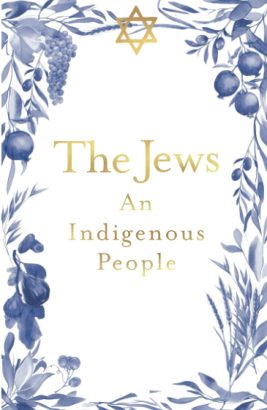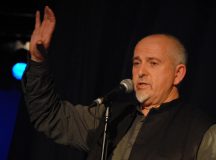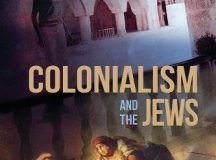Ben Freeman writes about his recent book, The Jews: An Indigenous People. While Jews’ primary concern is how we understand ourselves, Freeman writes, indigeneity also offers a way for the wider world to comprehend Jewish experience and identity.
The Jews are indigenous to the Land of Israel. My new book, The Jews: An Indigenous People (released on February 27, 2025), presents the first-ever scholarly work to conclusively prove this.
A major challenge in addressing indigeneity – especially Jewish indigeneity – stems from the politicisation of the term. Emerging from the post-colonial decolonisation discourse, much of the rhetoric surrounding indigeneity focuses on concepts like ‘firstness,’ primitiveness, and inherent oppression. These ideas contribute to the false notion that indigeneity is irrelevant or inapplicable to the Jewish people. However, many non-Jewish indigenous groups also reject such narrow definitions.
‘Firstness’ is a problematic criterion when determining indigeneity. There are cases where the first inhabitants of a territory are not considered indigenous. For instance, a small group of Gaelic monks followed by Vikings were the first to arrive in Iceland, yet their descendants, the Icelanders, are rarely regarded as indigenous. In contrast, the Maasai, who arrived in Tanzania between the 17th and 18th centuries after migrating from the Nile Valley north of Lake Turkana, are considered indigenous.
This highlights that indigeneity should not be defined by ‘firstness’ alone. As I state in the book ‘Firstness must be recognised as a complicated criterion and cannot always serve as a reliable indicator of indigeneity. We should not dismiss it entirely, however; instead, we should consider where groups, as a collective, emerged and where they have remained rooted.’
Moreover, indigeneity should not necessarily be constrained by modern political borders. A pragmatic approach is required when addressing issues of indigenous sovereignty. The West Bank, or Judea and Samaria, historically part of Jewish indigenous land, is an example. While it has been central to Jewish history, it need not be part of Israel today. Political and demographic factors suggest it would likely form the majority of a future Palestinian state.
I must clarify, however, that this discussion is not an examination of Palestinian indigeneity. I have not explored their history through the lens of my definition of indigeneity, nor according to the United Nations’ criteria. Therefore, I do not claim to determine whether Palestinians meet the standard for indigeneity. As stated in the introduction to my book, this work does not comment on Palestinian indigeneity or their right to statehood. I affirm my contingent support for a Palestinian state while asserting my right as a Jewish scholar to investigate Jewish history.
The notion that indigenous peoples are either primitive or inherently oppressed reflects the racism of low expectations. In the book, I recount a story originally told by Marvin Singh in The New Yorker, in which a teacher from the Huottüja community in Colombia expresses his discomfort with the term ‘indigenous,’ which he feels describes his people as ‘savage, like wild animals.’ Joanne Barker, professor of American Indian Studies at San Francisco State University, elaborates in Native Acts (2001) on how such associations complicate the ability of Native peoples to narrate their histories, acknowledging their cultural complexities, modernity, and technological advancements. As I write in my book: ‘There is no inherent or logical reason why indigenous people can’t be modern and technologically minded.’
The idea that indigenous peoples are inherently oppressed is similarly problematic. This narrative often leads some Jews – particularly liberal Jews – to feel they cannot claim indigeneity due to its associations with oppression. While it is true that many indigenous peoples, including Jews, have been oppressed, to suggest that oppression is intrinsic to indigeneity strips agency and power from these peoples. This raises a question: What happens when an indigenous people successfully decolonises their land, as the Jews did with the rebirth of Israel in 1948, after enduring waves of conquest and occupation by the Babylonians, Persians, Greeks, Romans, Byzantians, Muslim Arabs, Crusaders, Mamluks, Ottomans, and British? Are they no longer considered indigenous? Such a claim is absurd and undermines the common aspiration among indigenous peoples to restore sovereignty over their lands.
The Jews: An Indigenous People offers a history of the first 1,300 years of ancient Jewish life, grounded in my perspective that while the Torah is central to Jewish identity as our constitution and legal code, its account of our origins isn’t always historically accurate. This doesn’t make it false; rather, I believe it is rooted in memory and was written and edited with the purpose of building ancient Jewish identity. My writing, supported by archaeological and epigraphic evidence, aims to present the Jewish story as history – so we can understand our past not only as biblical stories, but as the foundational history of the Jewish people.
It then proves – using both the United Nations’ criteria for identifying indigenous peoples and my own depoliticised definition – that Jews are indigenous.
My definition of indigeneity states:
An indigenous people are a group whose collective identity began in one specific land, and it is in that land they remained rooted (either physically, spiritually, or culturally). This is their home and is where they originated, developed, and continued to be fixed through a connection to the environment and natural resources, living systems, culture, and practices as a people, irrespective of their sovereignty in the land.
To substantiate this, I apply the United Nations’ seven criteria for determining indigeneity to the Jewish people. Each criterion reflects the deep-rooted connection Jews have to the Land of Israel:
- Self-identification as indigenous peoples at the individual level and acceptance by the community as members.
- Historical continuity with pre-colonial and/or pre-settler societies.
- Strong link to territories and surrounding natural resources.
- Distinct social, economic or political systems.
- Distinct language, culture, and beliefs.
- Form non-dominant groups of society.
- Resolve to maintain and reproduce their ancestral environments and systems as distinctive peoples and communities.
The Jewish people’s collective identity began in the Land of Israel – this is an indisputable historical fact. From the ancient tribes to the formation of the Kingdom of Israel, the Land of Israel has always been central to Jewish history. Even through centuries of exile, the connection endured. Jews have always prayed toward Jerusalem and yearned to return, keeping Israel as the spiritual and cultural heart of the Jewish people.
This connection is physical, spiritual, and cultural. From ancient times, Jews maintained a tangible relationship with the land and its resources, which were integral to their traditions. Agricultural mitzvot tied to the land exemplify this. The enduring connection, irrespective of political sovereignty, demonstrates how Jews remained grounded in the Land of Israel.
Regarding the United Nations’ criteria, the Jewish people clearly meet these standards. We have a distinct language, culture, and belief system rooted in the Land of Israel. We’ve maintained a strong link to the land and its surrounding natural resources. For centuries, Jews kissed the ground upon arriving in Israel. The ancient origins of our festivals, such as Sukkot, Pesach, and Shavuot, are deeply tied to the land, as are celebrations like Chanukah, which mark the reclaiming of sovereignty. Jews in the diaspora are often buried with soil from Israel. We maintain historical continuity through a continuous presence in the Land of Israel, despite our Diaspora. (The Torah, our legal code, allowed us to build Jewish lives according to Jewish law anywhere in the world.) Our calendar, rooted in the Land of Israel, continues to govern the Jewish year today and is the official calendar of the modern State of Israel.
The first criterion, ‘Self-identification as indigenous peoples at the individual level,’ reveals the need for flexibility in interpreting these criteria. Jews have clear membership criteria, but most would not identify as indigenous. This is not because Jews are not indigenous, but because the term has not historically been used to describe them. Yet, as I note
Despite being born in the Diaspora, many Jews outside of Israel feel a closer connection to Israel than to the countries of their birth. A 2023 study by the Institute for Jewish Policy Research revealed that 52 per cent of Jews in Spain, 49 per cent in France, and 33 per cent in Britain feel more closely related to Israel than to the countries in which they live. These statistics demonstrate Jewish indigeneity and the profound connection between individual Jews and Israel.
Finally, the sixth criterion, ‘Form non-dominant groups of society,’ must be rejected. It reflects the politicisation we addressed earlier. As I ask in my book: ‘When a group, such as the Jews or the Armenians, reclaims sovereignty over their indigenous land, does this weaken the claims of indigenous tribes in Canada? Are the Inuits, the indigenous people of Greenland, no longer indigenous because they constitute the majority?’
The Jewish people’s indigeneity to the Land of Israel is clear, but why does it matter? Some might argue that the politicisation of indigeneity calls for its abandonment. I strongly disagree.
Jewish indigeneity matters because it provides a meaningful framework for understanding our deep connection to Israel. It explains why so many Jews in the diaspora feel a strong pull to the land, why they make the choice to leave their homes to live there, and why they feel such a deep kinship with fellow Jews. We are a people with one heart and one land. Indigeneity offers an anthropological lens to comprehend this connection – not defined only by sovereignty or borders, but by something deeper.
While the Torah’s perspective – that God promised us the land – forms the bedrock of the Jewish connection to Israel, indigeneity does not replace this crucial concept. Rather, it complements it. It provides a contemporary framework that allows us to view our specific connection through a universal lens – one that offers an additional layer of understanding derived from human concepts. After all, we are part of the world, not apart from it. By framing the Jewish connection to Israel within the context of indigeneity, we ground our argument in universally recognised criteria such as historical continuity, cultural ties, and territorial connection.
While our primary concern is how we understand ourselves, indigeneity also offers a way for the wider world to comprehend our experience and identity. It directly challenges the narrative that Jewish claims to the land are foreign or colonial—including the false claim that Zionism is settler colonialism—underscoring the unbroken ties we have with Israel. Rooted in the United Nations’ definition of indigenous peoples, this approach not only explains the Jewish claim but places it within a globally recognised context. Ultimately, it affirms that Jews are a people – an indigenous people – and that our right to live in and govern our homeland is a fundamental truth (notwithstanding that while certain areas are central to Jewish history, they need not necessarily be part of contemporary sovereign Israel).
This work concludes my Jewish Pride trilogy, which began with Jewish Pride: Rebuilding a People in 2021 and continued a year later with Reclaiming our Story: The Pursuit of Jewish Pride. In both I argue that a core tenet of Jewish Pride is rejecting non-Jewish definitions of Jewish identity. To do this, we must first understand who we are – an indigenous people with an unbroken connection to the Land of Israel. This book deepens that understanding, showing how our indigeneity is not just a historical claim but a modern, undeniable truth that redefines our identity and illuminates our connection to our land. As Jews, we must define ourselves, rooted in our connection with our indigenous land, and this knowledge will empower us to move forward with authenticity, confidence and pride.





































